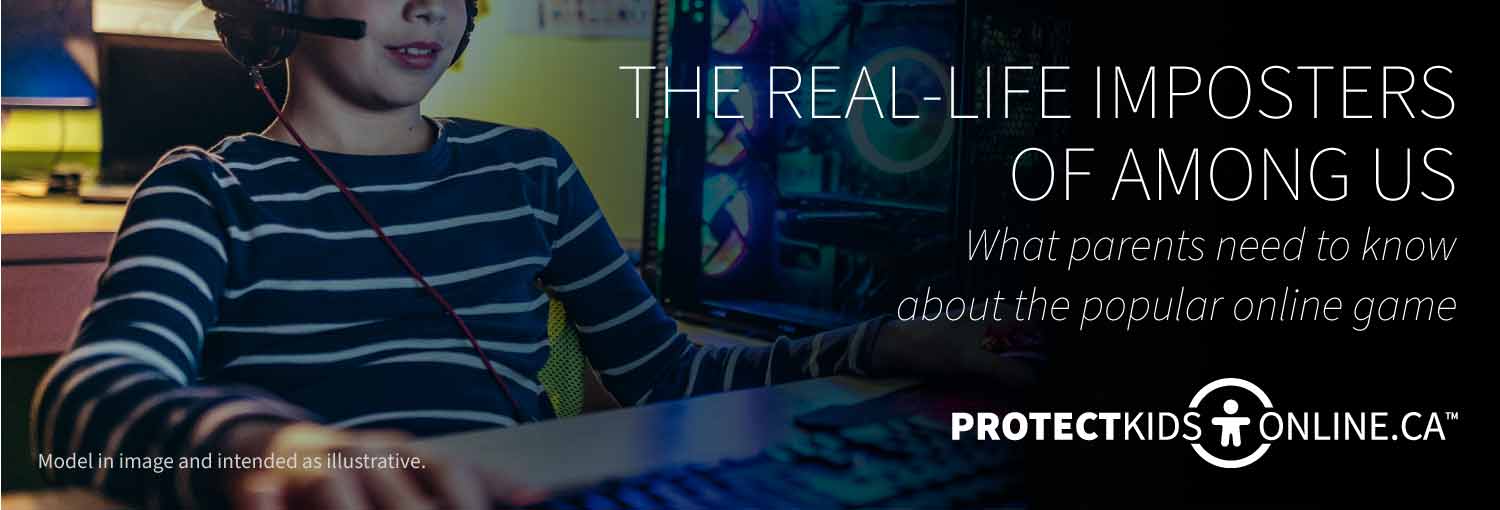The real‑life imposters of Among Us™
What parents need to know about the popular online game

Have you been hearing terms like “sus” and “venting” thrown around by your kids? The language comes from the hugely popular online multiplayer game Among Us. The game skyrocketed in late 2020 where roughly half a billion people played in November alone.1 Even federal NDP leader Jagmeet Singh teamed up with American congresswoman Alexandria Ocasio‑Cortez for a live‑streamed playthrough that raised over $200,000 US for charity.2
The game’s premise is simple: players run around performing simple tasks and trying to avoid other “imposter” characters trying to secretly take out the rest of the crew. The object of the game is to vote out the imposters and perform enough tasks to save the facility before the imposters pick off the other characters. Players host virtual chats where they discuss who among them seems “sus” (suspicious) before casting their vote. Among Us can be played in either public or private, invitation‑only lobbies.
So why should parents have the game on their radar?

Risks and reports to Cybertip.ca
Cybertip.ca received its first report related to Among Us in October 2020, and since then there have been 13 additional reports, with most of them related to the game’s chat function. Seven of these reports have since been forwarded to law enforcement.
Some of the risks flagged by these reports include:
- Attempts to move children over to a different platform
- Some reports described users asking children to move to a different platform (such as text message) to communicate
- Inappropriate content in the chat function
- Users posting links in the chat function that were suggestive of possible child sexual abuse material (CSAM) or users with a sexual interest in children
- Unwanted interactions with strangers
- Playing in a public Among Us lobby can open up kids to risks associated with online interactions with strangers
In March 2021, Among Us released two new safety updates that developer Innersloth says are intended to improve safety for younger players3:
- A new Quick‑Chat feature allows players to communicate through chat using pre‑selected messages only – Quick‑Chat is mandatory for players under 13.
- Players who want to access free chat in Among Us will need to create an account, otherwise, they’ll play in a Guest Mode and be limited to the quick chat. According to the Among Us website, Child Users will first be subject to a parental notice and consent process prior to activation of their account.
Even with these new safety features, there’s still the potential for kids to simply enter a false birth date or fake parental consent to set up a full account.

How you can help your kids play Among Us safely
- First, learn about how the game works and play along
- Review the game’s guidelines, privacy policy, and reporting functions with your kids
- Inappropriate users can be reported directly through the game’s chat screen under the “kick” button
- You can also report any concerns related to the online sexual exploitation of children to Cybertip.ca
- If your child is under 13, help them set up their account to ensure they’re only using the “Quick Chat” option
- Among Us also has a parent portal where you can access info about your child’s account
- Encourage your child to use a private game setting — for example, setting up a private lobby that only friends can access by invitation
- Explain to your child that they should never agree to meet in person with someone from the game without a parent or guardian present
- Ensure that your children aren’t sharing personal information like their name, age, or location
- Remind your child that people online aren’t always who they say they are — and not to believe everything a person tells them online
- Limit the amount of time playing the game
- Have regular conversations with your kids about online safety. Our other resources on this site can help!